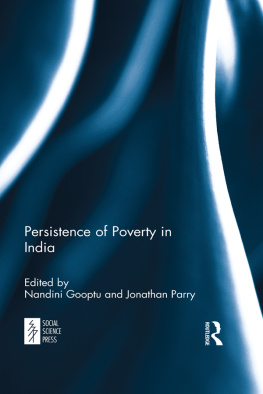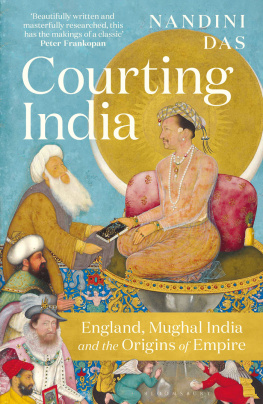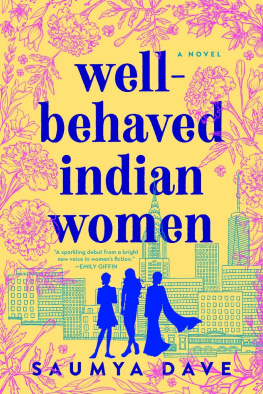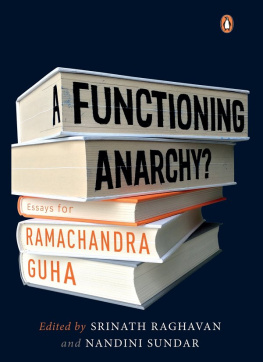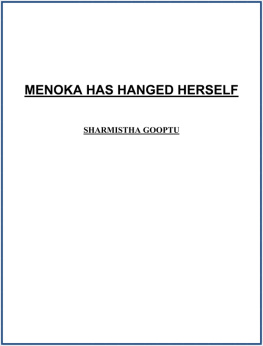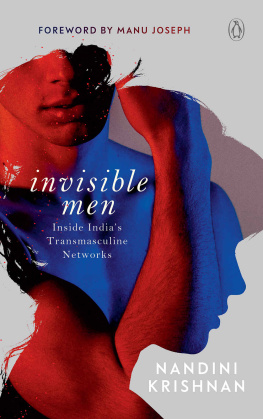Persistence of Poverty in India
Persistence of Poverty in India
Edited by
Nandini Gooptu
and
Jonathan Parry
First published 2018
by Routledge
2 Park Square, Milton Park, Abingdon, Oxon OX14 4RN
and by Routledge
711 Third Avenue, New York, NY 10017
Routledge is an imprint of the Taylor & Francis Group, an informa business
2018 selection and editorial matter, Nandini Gooptu and Jonathan Parry; individual chapters, the contributors; and Social Science Press
The right of Nandini Gooptu and Jonathan Parry to be identified as the authors of the editorial material, and of the authors for their individual chapters, has been asserted in accordance with sections 77 and 78 of the Copyright, Designs and Patents Act 1988.
All rights reserved. No part of this book may be reprinted or reproduced or utilised in any form or by any electronic, mechanical, or other means, now known or hereafter invented, including photocopying and recording, or in any information storage or retrieval system, without permission in writing from the publishers.
Trademark notice: Product or corporate names may be trademarks or registered trademarks, and are used only for identification and explanation without intent to infringe.
Print edition not for sale in South Asia (India, Sri Lanka, Nepal, Bangladesh, Afghanistan, Pakistan or Bhutan).
British Library Cataloguing in Publication Data
A catalogue record for this book is available from the British Library
Library of Congress Cataloging in Publication Data
A catalog record for this book has been requested
ISBN: 978-1-138-09966-1 (hbk)
ISBN: 978-1-315-14697-3 (ebk)
Typeset in Plantin 10/12.1
by Eleven Arts, Delhi 110 035
Contents
JONATHAN PARRY
NANDINI GOOPTU
HIMANSHU AND KUNAL SEN
PENNY VERA-SANSO
DIPANKAR GUPTA
JOS MOOIJ
PEGGY FROERER
ARILD RUUD
INDRAJIT ROY
DAVID PICHERIT
JULIA ECKERT
SURINDER S. JODHKA
STAFFAN LINDBERG, VENKATESH B. ATHREYA, GRAN DJURFELDT, A. RAJAGOPAL, AND R. VIDYASAGAR
BARBARA HARRISS-WHITE
DWAIPAYAN BHATTACHARYYA
T his volume brings together a selection of papers originally presented at a conference on Poverty in South Asia held at Queen Elizabeth House, Oxford at the end of March 2011. Two of the chapters (written by Himanshu and Sen, and by Roy) are subsequent additions. The study of poverty in India (the exclusive focus of this collection) has been heavily dominated by economists, demographers, and specialists in development studies. One of the main aims of the conference and of this volume has been to draw in contributions from other disciplinary fields that have not been so centrally or explicitly concerned with the issue, but which nevertheless have important insights to contribute to our analysis of it.
The Oxford conference was sponsored by the British Academy, and the conference proposal was developed in close conjunction with its South Asia Panel. The editors gratefully acknowledge the Academys generous support and the helpful input of Panel colleagues. We would also like to thank Indrajit Roy, Uma Pradhan, and Wendy Grist at Queen Elizabeth House for logistical support with conference arrangements.
We record with great sadness that before this volume could be published one of the contributors to it had passed away. Jos Mooij, Associate Professor at the Institute of International Studies in The Hague and the author of numerous highly regarded publications on policy processes and the politics of policies in India, died on 28 February 2013 after a long illness.
N.G.
J. P.
Venkatesh B. Athreya is Professor Emeritus in Economics at Bharathidasan University and is currently with the MS Swaminathan Foundation.
Dwaipayan Bhattacharyya is an Associate Professor in Political Science at the Centre for Studies in Social Sciences, Kolkata.
Gran Djurfeldt is Professor Emeritus of Sociology at Lund University.
Julia Eckert is Professor for Social Anthropology at the University of Bern, Switzerland.
Peggy Froerer is Senior Lecturer in Anthropology at Brunel University.
Nandini Gooptu is Fellow of St Antonys College, Oxford, and currently Head of the Department of International Development at Oxford University.
Dipankar Gupta is currently Distinguished Professor and Director, Centre for Public Affairs and Critical Theory, Shiv Nadar University. Earlier he was Professor of Sociology at Jawaharlal Nehru University, New Delhi.
Barbara Harriss-White is Emeritus Professor of Development Studies and Senior Research Fellow in Area Studies, Oxford University, and co-ordinator of the South Asia Research Cluster at Wolfson College, Oxford.
Himanshu is Assistant Professor of Economics at Centre for Study of Regional Development, School of Social Sciences, Jawaharlal Nehru University, New Delhi.
Surinder S. Jodhka is Professor of Sociology at Jawaharlal Nehru University, New Delhi.
Staffan Lindberg is Professor Emeritus of Sociology at Lund University.
Jos Mooij sadly passed away on 28 February 2013. She was Associate Professor at the Institute of Social Studies, The Hague.
Jonathan Parry is Emeritus Professor of Anthropology at the London School of Economics and Political Science.
David Picherit is Research Associate in the Department of Anthropology at University College of London.
A. Rajagopal holds a senior research position with PRIA Foundation in Chennai.
Indrajit Roy is ESRC Future Research Leader Fellow at the Department of International Development, University of Oxford.
Arild Engelsen Ruud is Professor of South Asia Studies at the University of Oslo.
Kunal Sen is Professor of Development Economics at the Institute of Development Policy and Management (IDPM), University of Manchester, and Associate Director of the Brooks World Poverty Institute.
Penny Vera-Sanso is Senior Lecturer in Development Studies and Social Anthropology at Birkbeck, University of London.
R. Vidyasagar is a researcher working with UNICEF in Chennai.
Introduction On the Persistence of Poverty in India
JONATHAN PARRY
T he eradication of poverty is a modern aspiration. Its persistence was long taken for granted as part of the natural order. The poor are always with you, says the Gospel of John (12: 8). In both Indian and Semitic religious traditions, (voluntary) poverty was valorized, and lay charitable giving was represented as a kind of expiatory gesture towards the higher goal of renunciation. On the eve of the Industrial Revolution in England, nobody seriously envisaged a world without poverty, or without the ethical duty of the rich to mitigate its effects (Himmelfarb 1985: 41). It was the productivity of the new industrial economy that made it possible to imagine a society from which absolute poverty was eliminated, although by the middle of the nineteenth century it seemed to many only to have exacerbated it. According to Engels assessment of



